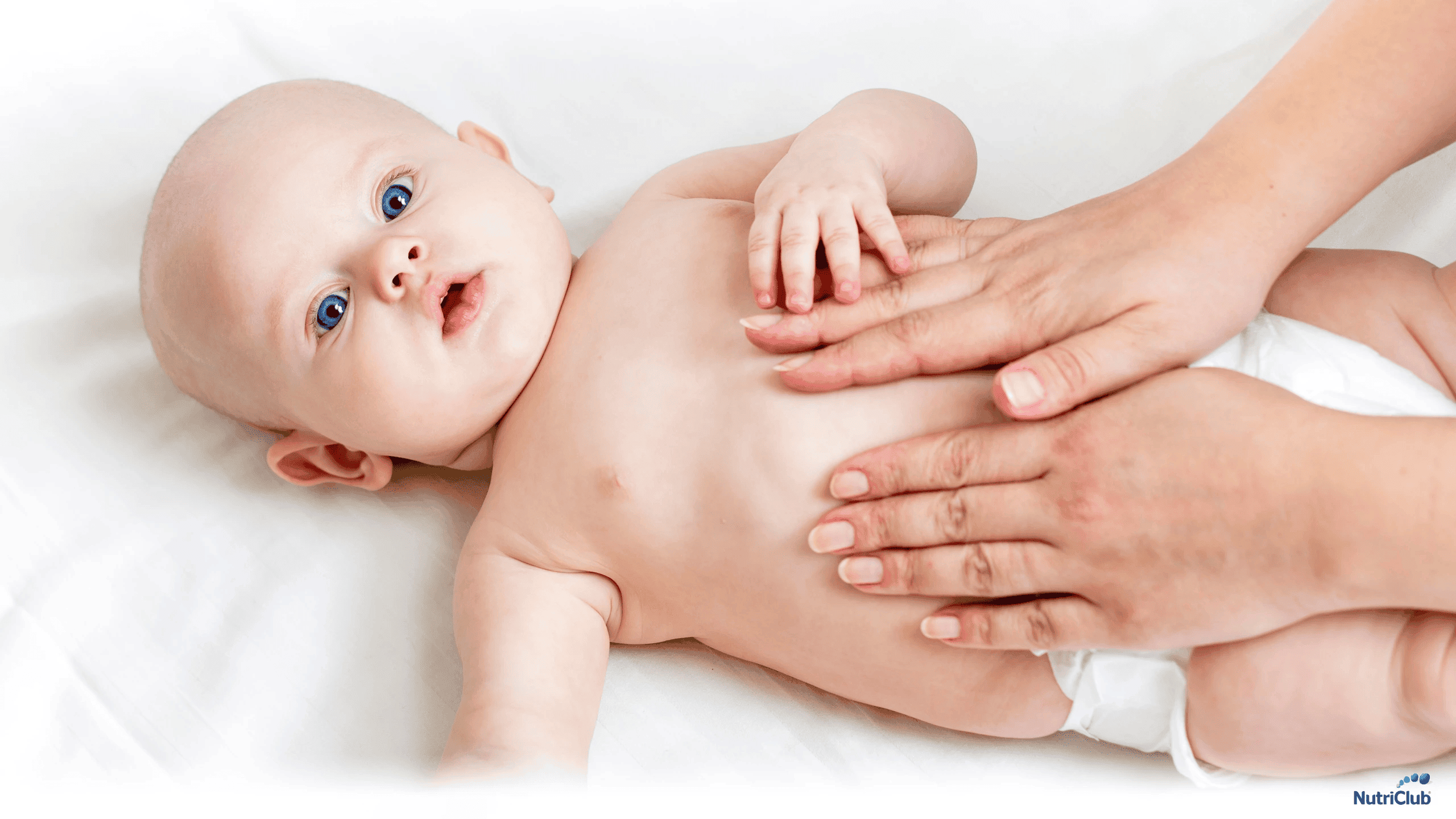If you’re wondering how to relieve constipation in babies quickly, rest assured that you’re not alone. As we’ve said above, constipation in babies is common, so it’s good to be aware of the best forms of baby constipation relief.
However, keep in mind that all babies are different, and whilst hopefully you’ll see an improvement in a couple of days, constipation in babies can take a little time to resolve.
Here are a couple of practical tips on how to relieve baby constipation3:
- Gently move your baby’s legs as if they’re riding a bicycle whilst they’re lying down.
- Try giving your baby a tummy massage. This involves gently and carefully massaging your baby’s tummy to help stimulate their bowels.
- If your baby is bottle feeding with formula milk, or has started weaning and eating some solid foods, you can give them a small drink of cooled boiled water in between their feeds.
Physical exercise can also help to get your child’s digestive system moving, so encourage active play, followed by a nice warm bath - another way to ease the symptoms of baby constipation.
These steps can be really helpful in getting things on the move, but if you don’t see any improvement, have a chat with your GP or health visitor. It might be that they decide to provide your baby with a laxative to help relieve symptoms and discomfort3.




?ts=1701285595274&dpr=off)
